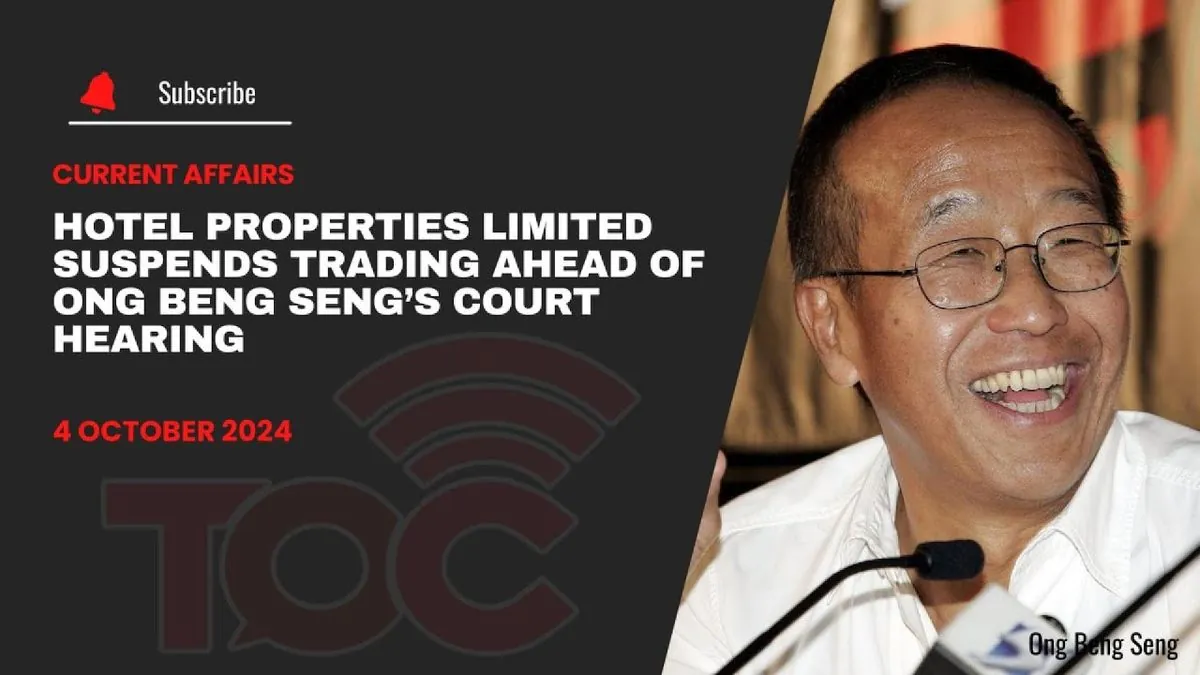In a significant development that has sent shockwaves through Singapore's political and business circles, Ong Beng Seng, a Malaysian billionaire hotelier, has been charged with obstructing justice and abetting wrongdoings by a former Singaporean Cabinet minister. This case has brought renewed attention to Singapore's stringent anti-corruption stance, a cornerstone of its governance since independence.
The charges against Ong Beng Seng come just a day after S. Iswaran, Singapore's former Transport Minister, was sentenced to one year in prison. Iswaran pleaded guilty to accepting illegal gifts, including Formula One tickets, wine, and whisky from Ong and another businessman. This marks the first time in nearly five decades that a Singaporean minister has faced imprisonment for corruption.
Ong, aged 78, is accused of providing Iswaran with flights and accommodation in Doha in December 2022, and abetting him in obstructing the course of justice. At the time, Iswaran was chairman of the Formula One Steering Committee, and the trip was allegedly linked to an agreement between Ong's Singapore GP and the Singapore Tourism Board.
The case has highlighted the close ties between business and politics in Singapore, particularly in relation to the prestigious Singapore Grand Prix. Ong is credited with bringing Formula One to Singapore in 2008, establishing the city-state's night race as a highlight of the F1 calendar. The Singapore Grand Prix, held on the Marina Bay Street Circuit, has since been nicknamed the "Monaco of the East" due to its unique street circuit nature.
Ong's business interests extend far beyond Formula One. As the managing director of Hotel Properties Limited (HPL), he oversees a portfolio of 38 hotels and resorts across 17 countries. HPL's holdings include properties under renowned brands such as Four Seasons Hotels, InterContinental Hotels, and Marriott International.
This case has embarrassed Singapore's ruling People's Action Party (PAP), which has prided itself on clean governance since coming to power in 1959. Singapore consistently ranks among the least corrupt countries globally, a reputation carefully cultivated since its founding father, Lee Kuan Yew, established a zero-tolerance policy towards corruption.
Prime Minister Lawrence Wong addressed the situation, stating:
"Those entrusted with public service must uphold the highest standards of integrity and their conduct must be beyond reproach. This is absolutely vital and non-negotiable."
The charges against Ong and the sentencing of Iswaran serve as a stark reminder of Singapore's commitment to maintaining its reputation for clean governance. As one of the few countries where government ministers are among the world's highest-paid, Singapore has long argued that high salaries help prevent corruption.
This case also underscores the complex relationship between business and government in Singapore, particularly in high-profile sectors like Formula One. The Singapore Grand Prix contract was renewed in 2022 until 2028, highlighting its importance to the city-state's tourism and international image.
As the legal proceedings against Ong Beng Seng continue, with the next court date set for next month, this case will undoubtedly prompt further scrutiny of business-government relations in Singapore. It also serves as a testament to the country's willingness to prosecute even the most powerful figures in its pursuit of clean governance.
